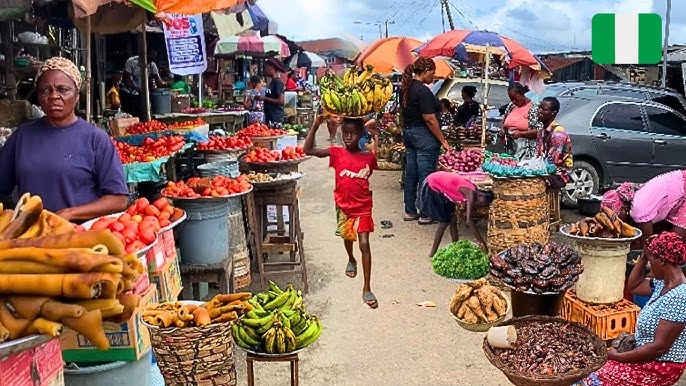BUSINESS

WHY NIGERIANS ARE STILL STRUGGLING DESPITE FALLING INFLATION
For the fourth month in a row, Nigeria’s official inflation rate has dropped, sliding to 21.88% in July from 22.22% in June. On paper, that sounds like good news. In fact, President Tinubu’s team has celebrated the decline as proof that the economy is stabilizing under his leadership.
But step into any Nigerian market, and you’ll hear a different story.
The Beautiful Numbers vs Harsh Realities
While the National Bureau of Statistics (NBS) churns out figures that appear encouraging, ordinary Nigerians and business owners say the reality on the ground tells another tale. Food, transport, fuel, and energy prices remain painfully high.
A 50kg bag of local rice now sells for ₦69,000–₦75,000 in Lagos and Abuja.
Petrol costs around ₦865–₦925 per litre.
Cooking gas sits between ₦1,000–₦1,200 per kilogramme.
Electricity tariffs (Band A) are ₦209–₦231 per kWh.
Add rising transport fares to the mix, and it’s easy to see why many Nigerians feel squeezed, even as government statistics suggest inflation is easing.
Experts point to several reasons for the mismatch between official figures and lived experiences:
Different Baskets of Goods: Inflation is measured using a “basket” of items. If prices of goods inside that basket fall, inflation drops — even if other essential items outside the basket remain costly.
Rising Food Costs: Food inflation remains stubbornly high due to insecurity in farming regions, high import costs for agricultural inputs, and expensive logistics like fuel and transport.
Interest Rates & Policy Choices: With the Central Bank’s benchmark interest rate at 27.5%, borrowing has become more expensive, putting extra pressure on businesses.
Mazi Okechukwu Unegbu, former President of the Chartered Institute of Bankers, dismissed the NBS figures, calling them “beautiful reports” that don’t reflect reality. He urged the government to tackle hunger and review economic policies instead of celebrating statistics.
Gbolade Idakolo, CEO of SD & D Capital Management, highlighted insecurity in agrarian areas and exchange rate issues as major drivers of food inflation.
Prof. Segun Ajibola, economist and former CIBN president, explained that inflation figures are estimates and may not fully represent what people experience in markets across the country.
"This represents a significant development in our ongoing coverage of current events."— Editorial Board









